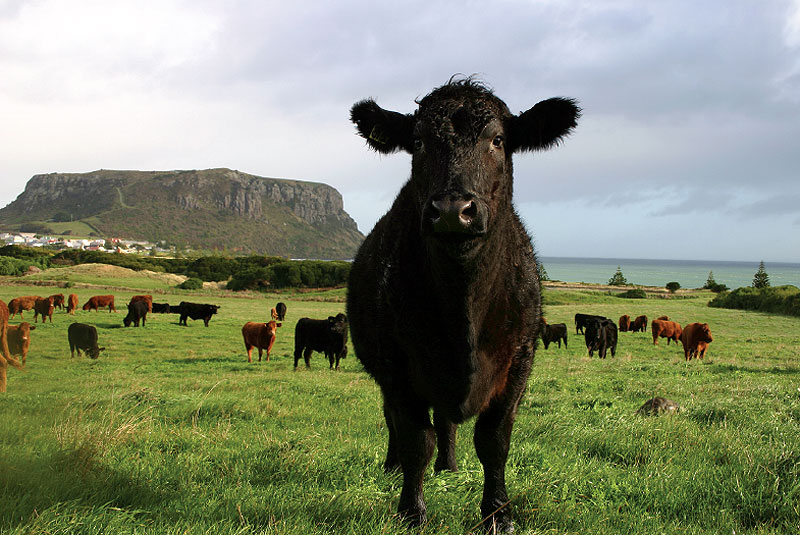I am sorry if you are offended, John. Perhaps you might like to save some of that anger for the inhumane conditions the animals endure in factory farms. These animals are bred for our consumption, we should at least care about their welfare and be concerned about how they were raised. As I have indicated, there is also an effect on meat quality. If an animal does not get enough exercise, or the animal was diseased, the meat will have less flavour. If the factory farm feeds antibiotics to their livestock, it will have knock-on effects on antibiotic resistance for pathogens that infect humans. If the animal was not slaughtered properly, ATP depletion and lactic acid buildup degrades meat quality. If the primal cuts were aged in cryovac, you get the strange sulphuric smell of mercaptans instead of the pure beef flavour of dry aged beef.
There are all sorts of reasons why we should not shop on price. Lowest priced meats virtually guarantee unethical farming practice and in fact encourages it.
The beef I buy comes from Cape Grim, in Tasmania. I visited Cape Grim a few months ago. It is true, the cows really live like this:

In contrast, this is the kind of life a factory farm cow lives:

The only reason why beef, chicken, and pork has become widely affordable is because of factory farming. Throughout millenia, farmed livestock has been free range.
I think people should be more informed about the choices they make. Just as people who shop at Walmart are inadvertently destroying American jobs, people who buy cheap meat are encouraging bad farming practice. This is supposed to be "Whats Best" forum, so forgive me for recommending what I think is best. Buying good meat is not elitist. It should be the absolute minimum.
There are all sorts of reasons why we should not shop on price. Lowest priced meats virtually guarantee unethical farming practice and in fact encourages it.
The beef I buy comes from Cape Grim, in Tasmania. I visited Cape Grim a few months ago. It is true, the cows really live like this:

In contrast, this is the kind of life a factory farm cow lives:

The only reason why beef, chicken, and pork has become widely affordable is because of factory farming. Throughout millenia, farmed livestock has been free range.
I think people should be more informed about the choices they make. Just as people who shop at Walmart are inadvertently destroying American jobs, people who buy cheap meat are encouraging bad farming practice. This is supposed to be "Whats Best" forum, so forgive me for recommending what I think is best. Buying good meat is not elitist. It should be the absolute minimum.





